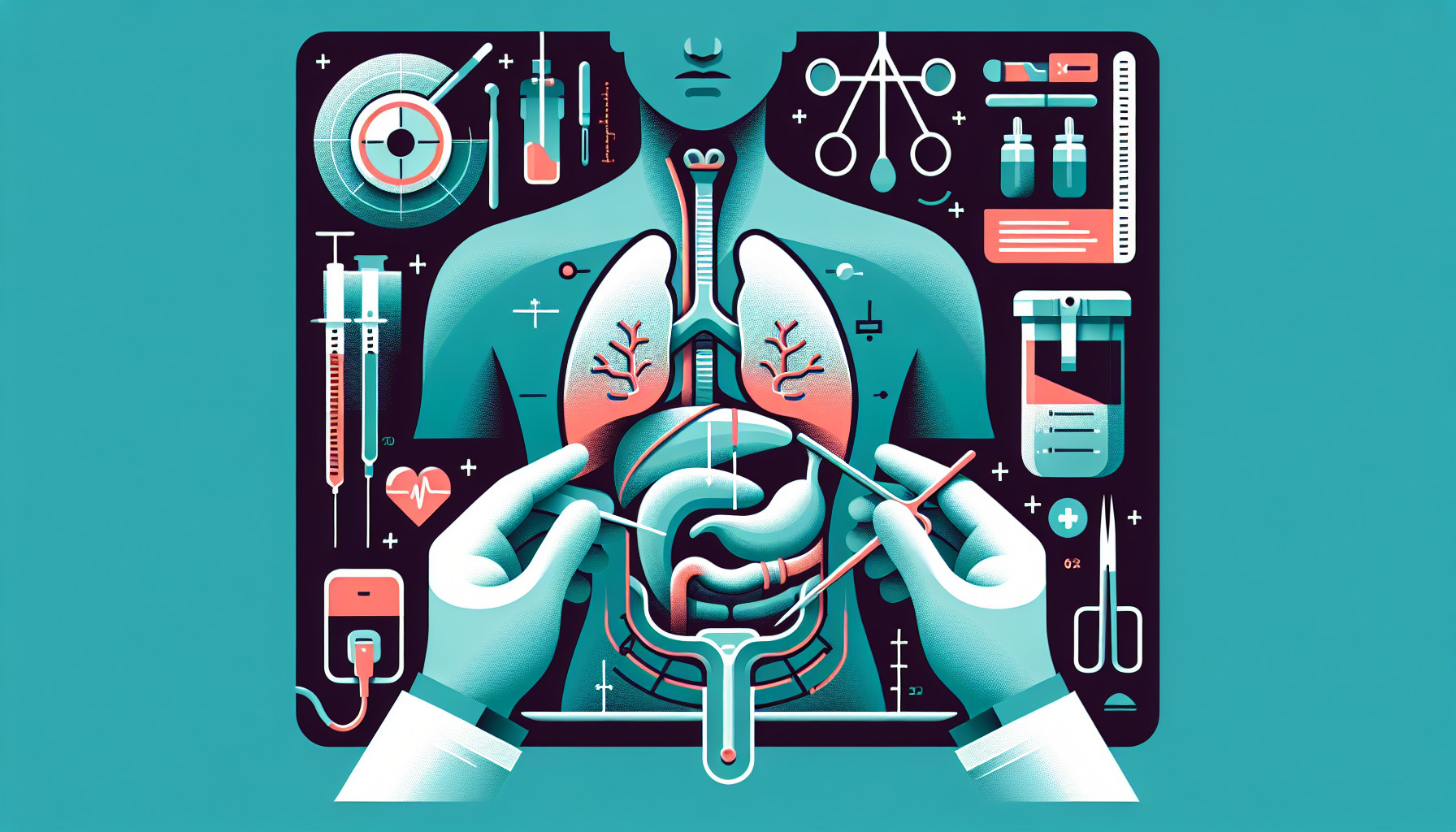Our Summary
This research looked at how different types of drugs, called vasopressors, can affect the success of a pancreas transplant and the survival rate of patients. The study analyzed data from over 17,000 pancreas transplant patients from 2000 to 2019.
The results showed that if the drug dopamine was used during the transplant, the transplant was more likely to fail (by 18%) and the patient was more likely to die (by 37%). If no vasopressor drug was used, the transplant failure rate went up by 8% and the death rate went up by 14%. However, if the drugs phenylephrine and norepinephrine were used, the death rate went down by 10% and 11% respectively.
This suggests that not using a vasopressor drug, or using dopamine, could increase the risk of both the transplant failing and the patient dying. The use of phenylephrine and norepinephrine could reduce the risk of the patient dying. This information could be valuable for planning how to handle organ donations in the future.
FAQs
- How do different types of vasopressor drugs affect the success rate of pancreas transplants?
- What is the impact of using the drug dopamine during a pancreas transplant?
- Can the use of phenylephrine and norepinephrine reduce the risk of death in pancreas transplant patients?
Doctor’s Tip
Therefore, it is important for patients undergoing a pancreas transplant to discuss with their doctor the type of vasopressor drug that will be used during the procedure. It is also crucial for patients to follow their doctor’s recommendations and closely monitor their recovery post-transplant to ensure the best possible outcome.
Suitable For
Patients who are typically recommended for a pancreas transplant include those with type 1 diabetes who have difficulty controlling their blood sugar levels with insulin therapy, as well as those with severe complications of diabetes such as kidney failure, nerve damage, or vision problems. Additionally, patients who have experienced recurrent episodes of severe hypoglycemia (low blood sugar) or have a history of diabetic ketoacidosis may also be considered for a pancreas transplant. Other factors that may be taken into consideration include age, overall health, and the presence of other medical conditions.
Timeline
Before a pancreas transplant, a patient typically undergoes extensive medical evaluations to determine their eligibility for the surgery. This includes blood tests, imaging tests, and consultations with various specialists. Once deemed eligible, the patient is placed on a waiting list for a suitable donor pancreas.
After receiving a pancreas transplant, the patient will be closely monitored in the hospital for several weeks to ensure the transplant is successful and there are no complications. Immunosuppressant medications will be prescribed to prevent rejection of the new organ. The patient will need to make lifestyle changes, such as following a strict diet and exercise regimen, to maintain the health of the transplanted pancreas.
Over time, the patient will have regular follow-up appointments with their transplant team to monitor the function of the pancreas and adjust medications as needed. With proper care and adherence to medical advice, the patient can expect to live a longer and healthier life with a functioning pancreas transplant.
What to Ask Your Doctor
- What types of vasopressors will be used during my pancreas transplant surgery?
- How will the use of vasopressors affect the success rate of my transplant?
- Are there any alternative medications or strategies that can be used instead of vasopressors?
- What are the potential risks and side effects associated with the use of vasopressors during a pancreas transplant?
- How will the choice of vasopressors impact my recovery and long-term outcomes after the transplant?
- Are there any specific factors about my medical history or condition that may influence the choice of vasopressors for my transplant surgery?
- How will the medical team monitor and adjust the use of vasopressors during and after the transplant surgery?
- What is the overall success rate of pancreas transplants at this medical center, and how do vasopressors play a role in this success rate?
- Are there any additional questions or concerns I should discuss with my healthcare team regarding the use of vasopressors during my pancreas transplant?
Reference
Authors: Froehlich M, Koizumi N, James RM, Christian AGW, Choubey A, Patel S, Ortiz J, Siskind EJ. Journal: Pancreas. 2022 Aug 1;51(7):747-751. doi: 10.1097/MPA.0000000000002103. PMID: 36395398
